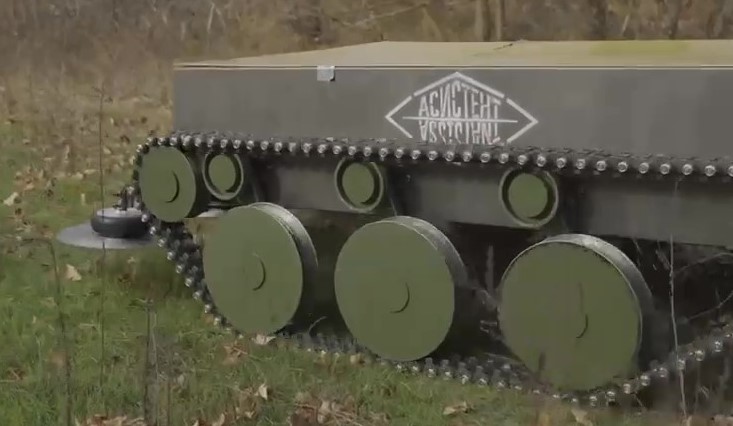Ukrainian prisoners are being forced to make “wooden” mines to blow up their own military colleagues. The head of the specialized NGO Demining Control spoke about Putin’s prison innovation during the National Demining Telethon. In the live studio, Oleh Deyneka demonstrated a typical wooden tissue box, similar to the one given to Ukrainian prisoners of war by the wardens of Russian prisons, and demanded that they place improvised explosive devices in it.
Oleh Deyneka: “They place 20 grams of TNT in almost the same wooden box so that when it explodes, the splinters from it fly around and hit the leg, which then rots from it. After all, wood is not identified by MRI (magnetic resonance imaging) devices. And the more complex the mine, the more difficult it is to clear, and the more severe the consequences, so the state should pay maximum attention to mine action and mine risk management!”
The head of Demining Control, a humanitarian demining advocacy organization in Ukraine, noted that the use of metal detectors is also losing its effectiveness today, as the entire ground in mined areas literally “glows” from a large number of shell casings and other metal and explosive objects. According to Oleh Deyneka, soil grinding is now crucial in mine action.
Oleh Deyneka: “Without grinding the ground, we will not be able to really clear it. Milling involves restoring the land, because all this land is contaminated and cannot be used by anyone. This requires a huge budget, huge time and huge human resources. And the government and we all need to think about this now, because we are an agricultural country. We have to protect our land. This war is actually about it!
As an example of a “thresher” for demining Ukrainian land, the guest of the National Telethon cited the development of the Lviv-based company RoverTech – a ground drone called “Snake” that uses special sticks suspended on an axis that rotates in front of the drone and grinds the soil. Compared to the Croatian Božena machines, which have a heavy “blank” moving in front of them that breaks down after an explosion, repairing the Zmij chains is several times cheaper. The same applies to the price of the equipment itself.
Oleh Deyneka: “The Snake can withstand explosions of not only anti-personnel mines but also anti-tank mines. The advantage of this drone is its controllability from the remote control, which allows the operator to stay at a safe distance. In addition, this Ukrainian drone is much more maneuverable because it weighs about a ton and is five times lighter than the Croatian Bozen (10 to 12.5 tons). It is very difficult to use such large-sized equipment in the demining process, in particular, for its transportation over long distances and use in narrow places, such as forest belts.”
According to the head of Demining Control, Ukrainian specialists from the design bureau of Oleksiy Botnarenko have developed an even lighter drone for humanitarian demining – the Assistant machine, which weighs about 200 kg and uses cutters to cut vegetation. The “Assistant” drone pre-clears the area, leaving only a low layer of vegetation up to 20 cm high for further grinding of the ground by the “Snake”.
The Ukrainian line of innovative mine clearance products such as the Zmiy and Assistant is considered one of the most advanced in the world, especially for ensuring safe access to land in mined areas. An additional application for such ground drones was invented by the Ukrainian military, namely for the delivery of various equipment to the front line, including electronic warfare (EW) equipment. The use of drones for transportation significantly reduces the harmful effects of electronic warfare devices on the health of the Ukrainian Armed Forces infantrymen who used to carry such dangerous cargo.
For reference: This year, 2 to 2.5 billion hryvnias have been allocated for demining, and the state fully covers the cost of these works. Applications for demining are accepted through the State Land Register. According to Deputy Minister of Economy Ihor Bezkaravaynyi, more than 1,000 hectares of agricultural land have already been cleared of mines under the humanitarian demining program. The priority is to clear fields intended for future harvests. There are already 84 operators working in this area in Ukraine, which is eight times more than last year. Both domestic specialists and major international organizations are involved in the process. The demining of Ukrainian land is also financed by international funds, with Europe allocating €6 million to support operators.

